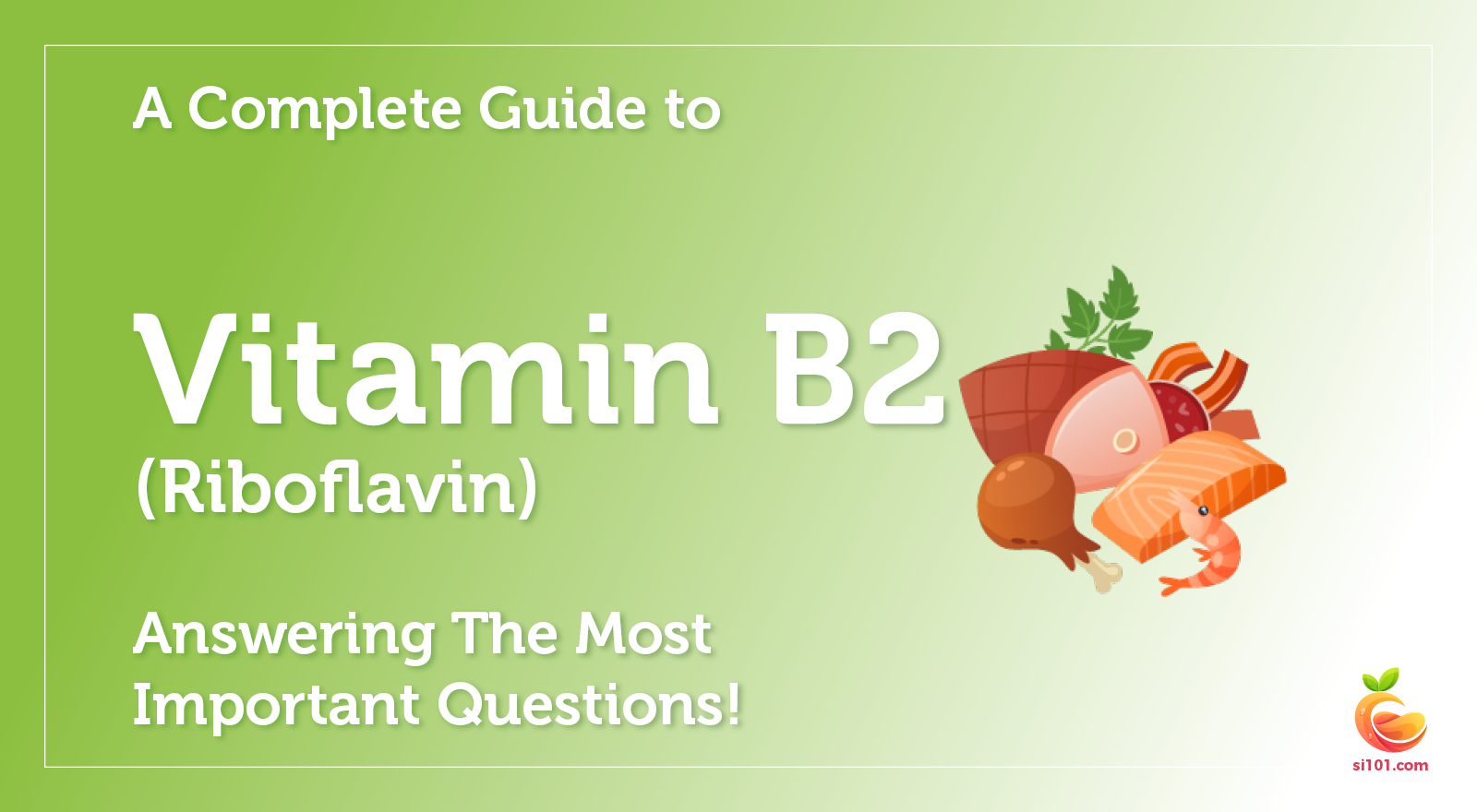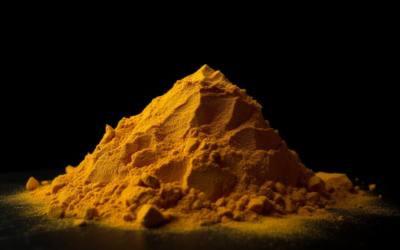Vitamin B2, also known as riboflavin, is an essential nutrient that plays a key role in many of the bodys processes. This comprehensive guide will provide you with everything you need to know about Vitamin B2, including its benefits, deficiency symptoms, sources and recommended daily intake. With this information at your fingertips, you can ensure that you are getting enough of this important vitamin for optimal health.
What are the health benefits of vitamin B2?
Vitamin B2, also known as riboflavin, is an essential nutrient that plays a vital role in keeping your body healthy. This comprehensive guide will provide you with everything you need to know about the health benefits of vitamin B2 and how it can help keep your body functioning optimally.
The primary benefit of vitamin B2 is its ability to help convert food into energy. It helps break down carbohydrates, proteins, and fats so they can be used by the body for energy production. Vitamin B2 also helps maintain healthy skin, eyesight, and nervous system function. Additionally, it has been shown to reduce inflammation and improve overall immunity.
Deficiency symptoms of vitamin B2 include fatigue, poor digestion, cracked lips or corners of the mouth, sore throat or tongue irritation, redness around the eyes or on the face, hair loss or brittle nails. To ensure adequate intake of this important nutrient it is recommended to consume foods such as milk products (yogurt and cheese), eggs, green leafy vegetables (spinach and kale), almonds and mushrooms on a daily basis. The recommended daily intake for adults is 1-1.3 milligrams per day depending on age and gender.
In conclusion, vitamin B2 plays an important role in maintaining optimal health by helping convert food into energy and supporting healthy skin tissue as well as eye sight functions among other benefits. Deficiency symptoms are easy to recognize but can be avoided by consuming foods rich in this essential nutrient every day according to recommended daily intakes for adults based on age and gender criteria
What is the recommended dosage of vitamin B2?
Vitamin B2, also known as riboflavin, is an essential nutrient that plays a vital role in keeping our bodies healthy. It helps to convert food into energy and supports cell growth and development. In this comprehensive guide, we will explore everything you need to know about vitamin B2, including its benefits, deficiency symptoms, sources of the nutrient and recommended daily intake.
One of the main benefits of vitamin B2 is that it helps keep your skin healthy by promoting tissue repair and regeneration. Additionally, it helps with red blood cell production which can improve oxygen circulation throughout the body. Vitamin B2 also aids in breaking down carbohydrates and fats for energy production as well as aiding in digestion. Deficiency symptoms may include fatigue, mouth sores or cracks at the corners of the mouth, inflammation of the tongue or lips and anemia.
Good sources of vitamin B2 include dairy products such as milk and yogurt eggs green leafy vegetables like spinach nuts whole grains mushrooms fortified cereals legumes such as lentils or beans organ meats such as liver or kidney fish such as salmon or tuna fortified breads and pastas soy products like tofu or tempeh. The recommended daily intake for adults is 1-1.3 milligrams per day depending on age and gender so be sure to consult your doctor if you are unsure how much you should be taking each day. With this information in mind, you now have all the knowledge you need to make informed decisions about incorporating vitamin B2 into your diet!
What are the functions of vitamin B2 in the body?
Vitamin B2, also known as riboflavin, is an essential nutrient that plays a vital role in many bodily functions. It is one of the eight B vitamins and is necessary for proper growth and development. In this comprehensive guide, we’ll explain everything you need to know about vitamin B2, including its benefits, deficiency symptoms, sources of vitamin B2 and recommended daily intake.
Vitamin B2 helps the body to break down carbohydrates, proteins and fats into energy. It also helps convert other vitamins into their active forms so they can be used by the body. Vitamin B2 aids in red blood cell production and supports healthy skin, hair and nails. Additionally, it helps protect cells from oxidative damage caused by free radicals which can lead to chronic diseases such as cancer or heart disease.
The recommended daily intake of vitamin B2 depends on age and gender but generally ranges from 1-1.3 milligrams per day for adults over 19 years old. Good sources of vitamin B2 include dairy products such as milk and yogurt green vegetables like spinach whole grains like wheat germ eggs nuts legumes mushrooms fish fortified cereals nutritional yeast and some fortified plant-based milks. Symptoms of a deficiency may include fatigue, mouth sores or cracks at the corners of the mouth, sore throat or eye problems such as sensitivity to light or blurred vision. If you think you may have a deficiency in vitamin B2 it’s important to speak with your doctor who can provide more information on how best to increase your intake through diet or supplementation if needed.
How should vitamin B2 be taken?
Vitamin B2, also known as riboflavin, is an essential nutrient that plays a key role in maintaining good health. Its important to understand how to take vitamin B2 and the benefits it can provide. This comprehensive guide will provide you with everything you need to know about taking vitamin B2.
The recommended daily intake of vitamin B2 varies depending on age and gender. For adults, the daily recommended amount is 1.1-1.3 milligrams per day for women and 1.3-1.7 milligrams per day for men. Vitamin B2 can be found in many foods such as dairy products, eggs, green vegetables, lean meats, nuts and seeds, fortified cereals and grains, mushrooms and yeast extracts. Supplements are also available if needed but should only be taken after consulting with your doctor or nutritionist first.
Taking vitamin B2 has numerous benefits including improved energy levels, better skin health and improved cognitive function due to its ability to help convert food into energy more efficiently within the body’s cells. Deficiency symptoms include fatigue, mouth sores or cracks at the corners of the mouth as well as anemia or thyroid issues so it’s important to ensure you are getting enough of this essential nutrient each day through diet or supplementation if necessary.
What are potential risks of consuming too much vitamin B2?
Vitamin B2, also known as riboflavin, is an essential nutrient that your body needs to stay healthy. It has many benefits and is important for a variety of bodily functions. However, its possible to consume too much vitamin B2 and this can lead to potential risks. In this comprehensive guide, well cover everything you need to know about the potential risks of consuming too much vitamin B2.
The most common risk associated with consuming too much vitamin B2 is digestive upset. Too much of the nutrient can cause nausea, vomiting, abdominal pain and diarrhea. Additionally, high doses of riboflavin may cause urine discoloration or yellowing of the skin in some people. If you experience any of these symptoms after taking a supplement or eating foods rich in vitamin B2, stop taking it immediately and consult your doctor.
Its also important to note that while deficiency symptoms are rare in developed countries due to adequate dietary sources of riboflavin, excessive intake can still occur if you take supplements or eat fortified foods on top of a balanced diet containing natural sources such as dairy products, eggs and leafy green vegetables. To avoid overconsumption and its associated risks, stick to the recommended daily intake (RDI) for adults which is 1.1mg per day for men and 0.9mg per day for women.
In conclusion, Vitamin B2 plays an important role in maintaining good health but consuming too much can lead to potential risks such as digestive upset or yellowing skin discoloration in some people. To ensure optimal health benefits from this essential nutrient without experiencing any adverse effects from overconsumption, make sure you follow the recommended daily intake guidelines for adults set by healthcare professionals and nutritionists alike
What are natural sources for vitamin B2?
Vitamin B2, also known as riboflavin, is an essential nutrient that plays a role in many of the body’s processes. It is important for maintaining healthy skin, eyesight, and energy levels. A deficiency in vitamin B2 can lead to a variety of health issues. In this comprehensive guide, you will learn everything you need to know about vitamin B2 including its benefits, deficiency symptoms, and sources.
The primary benefit of vitamin B2 is that it helps convert food into energy. It also helps maintain healthy skin and eyesight by protecting cells from oxidative damage caused by free radicals. Additionally, it supports the production of red blood cells which are necessary for transporting oxygen throughout the body. The recommended daily intake of vitamin B2 for adults is 1.1-1.3 milligrams per day depending on age and gender.
When it comes to natural sources of vitamin B2 there are plenty to choose from! Dairy products such as milk and yogurt are excellent sources as well as eggs and green leafy vegetables like spinach or kale. Other good sources include mushrooms, almonds, salmon, beef liver, fortified cereals and grains like quinoa or oats. Taking a multivitamin supplement may also be beneficial if you’re not getting enough through your diet alone. By incorporating these foods into your diet you can ensure that you get all the essential nutrients your body needs!
Frequently Asked Questions
What are the benefits of Vitamin BRiboflavin)?
Vitamin B2, also known as riboflavin, is an essential nutrient that helps your body convert food into energy. It also plays a role in maintaining healthy skin, eyes, and nervous system. Additionally, it helps the body absorb other vitamins and minerals such as iron and folate. Vitamin B2 may help reduce the risk of certain types of cancer and can help protect against heart disease. Finally, it can help improve physical performance by increasing energy levels during exercise.
What are the sources of Vitamin B
Vitamin B can be found in a variety of foods, including meat, eggs, dairy products, legumes, nuts and seeds, whole grains, and some fruits and vegetables. Fortified cereals are also a good source of Vitamin B. Additionally, Vitamin B supplements are available over the counter at most pharmacies.
What are the deficiency symptoms of Vitamin B
Vitamin B is an essential nutrient that helps the body to function properly. A deficiency in Vitamin B can cause a range of symptoms, including fatigue, depression, poor memory and concentration, irritability, muscle cramps or twitches, anemia, and digestive issues. In extreme cases it can lead to nerve damage.
How much Vitamin Bhould I take daily?
The recommended daily intake of Vitamin B varies depending on your age, gender, and lifestyle. It is best to consult with a healthcare professional to determine the amount of Vitamin B that is right for you.
Conclusion
Vitamin B2, also known as riboflavin, is an essential nutrient that has many benefits. It helps the body convert food into energy and supports healthy skin, eyes, and nervous system. Knowing about its recommended daily intake, sources of vitamin B2, deficiency symptoms and potential benefits can help you make sure you are getting enough of this important nutrient. This comprehensive guide provides everything you need to know about Vitamin B2 so that you can make informed decisions about your health.


